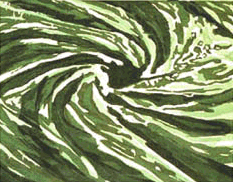|
News & Views item - December 2004 |
![]() CSIRO
Chief of the Division of Industrial Physics Says Physicists Thin on the Ground,
Barely Anyone Left to Hire. (December 23, 2004)
CSIRO
Chief of the Division of Industrial Physics Says Physicists Thin on the Ground,
Barely Anyone Left to Hire. (December 23, 2004)
On December 11th TFW reported that CSIRO's David Mitchell, a research leader at CSIRO Mathematical and Information Sciences has pointed out that there are insufficient appropriately trained and qualified people in Australia to analyse the information now being generated by the nation's molecular biology laboratories. "This sort of data is going to get enormous, but the number of people able to deal with it is tiny."
So far the lack of qualified mathematicians and statisticians in academe, the public service, and the private sector has gained little notice by the Commonwealth Government.
On December 13th we noted that in the November 26 issue of Science Jeffrey Mervis asks rhetorically, "What's the best way to share a meal with an 800-pound gorilla?" and then replies, "Physicists, mathematicians, and engineers may have a chance to answer that question if [US] federal legislators and agency officials embrace a campaign to expand the research menu at the National Institutes of Health (NIH)." And he goes on to report, "...life scientists are worried that inadequate funding for basic research in the physical sciences and engineering could deprive them of discoveries that could ultimately benefit human health."
Now Gerry Haddad, CSIRO's Chief of the Division of Industrial Physics in the Jan/Feb 2005 issue of Australasian Science under the headline Physics is Floundering writes, "Physics in Australia has been in bad shape for as long as I can remember Ė and thatís nearly 40 years. Whatís scary is that itís getting worse.
"If we want to generate more innovations Ė such as quantum computers, new materials that repair themselves automatically and new ways of making and distributing energy Ė we canít do without training many physicists who then devote lifetimes to research and development." And to indicate the depth of the problem he adds, "The number of applications for a research position [in our Division] has dropped over the past six years from, typically, 80 to around 10."
A while back a highly placed mathematician told academic colleagues who were
discussing the decline in support for mathematics in Australian academe, "Well,
things could be worse, you could be physicists," and The chair of the NSW branch of the Australian Institute of
Physics, Alex Hamilton, told The Sydney Morning Herald's Matthew Thompson
that if the current rate of decline continues in universities, "there will be no
one doing physics by 2020".
physicists," and The chair of the NSW branch of the Australian Institute of
Physics, Alex Hamilton, told The Sydney Morning Herald's Matthew Thompson
that if the current rate of decline continues in universities, "there will be no
one doing physics by 2020".
John O'Connor, head of mathematical and physical sciences at the University of Newcastle, has for a number of years not only pointed to the decline in numbers of academicians in the enabling sciences, he has actively pursued awakening interest in them in the secondary schools. He condemns the lack of qualified and enthusiastic secondary teachers for maths, chemistry and physics.
In fact the enabling sciences are being subjected to a vicious downward spiral. Declining numbers and quality of academic staff, lead to not only to an overall decline in the quality of research, they also effect the number and quality of secondary school teachers of the subjects, which in turn leads to a decline of student interest to undertake tertiary studies in them.
It seems beyond reason that the Minister for Education, Science and Training, Brendan Nelson, and his Cabinet colleagues are unaware of the situation which leads to the conclusion that they "don't much care."
Then away we go to an island fair
That lies in a Southern sea:
We know not where, and we don't much care,
Wherever that isle may be.
[G&S - Gondoliers]